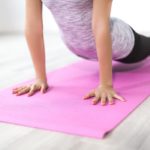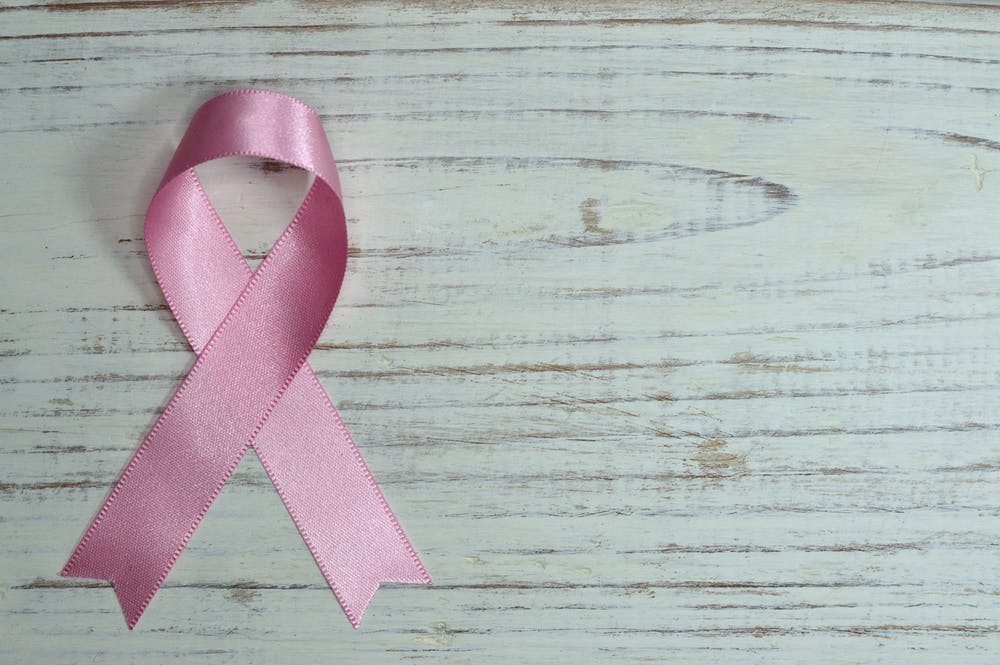 Here at STAG Mumbler, we are always keen to hear your recommendations of great providers of Adult Fitness and Wellbeing classes and groups. If you know of one, simply drop us an email telling us all about them at stag@mumbler.co.uk
Here at STAG Mumbler, we are always keen to hear your recommendations of great providers of Adult Fitness and Wellbeing classes and groups. If you know of one, simply drop us an email telling us all about them at stag@mumbler.co.uk
 Attention all Mums who love to sing!
Attention all Mums who love to sing!
We are the Abbey Belles – a female barbershop chorus based in Selby. We love singing together in harmony but we also like to have fun! We are a welcoming bunch and no audition is necessary.
The first 3 sessions are free and we meet on Tuesday evenings. We have a variety of ladies of all ages and from all walks of life!
It is a fact that singing is good for you! Improving your mental and physical health. One of our tenors (the highest part) joined when her second baby was just 6 weeks old.
“Singing in the chorus helped me through postnatal depression and then through the COVID lockdowns when we did Zoom choir. I have always left the session happier than I arrived. Carving out that little bit of regular time for me is one of the best things I have ever done.”
 With special thanks to East Riding Council for sharing this feature with us.
With special thanks to East Riding Council for sharing this feature with us.
After a successful launch of the year-long cancer awareness project to encourage people to talk more about cancer, help support residents to have those difficult conversations and to check their body, East Riding of Yorkshire Council urges residents to take note of the information below.
In general, if cancer is diagnosed early, there is an 81% chance of survival. If diagnosed late, the chance of survival drops dramatically to 26%.
John Skidmore, director of adults, health and customer services, said: “If you notice signs and symptoms which are persistent and are not going away, you are not sure why they are happening or they are not normal for your body, seek advice from your doctor.
“The chances are this is nothing to worry about, but the doctor will want to see you to make sure.”
This year-long campaign focuses on a different theme each month and this month (February) is about information on the main cancers, how to recognise the signs and symptoms and getting early diagnoses.
Cancer is the name given to an illness resulting from one of our body’s own cells growing out of control.
Usually they form a lump of tissue called a tumour (primary). If the cancer spreads to another part of the body, it is more difficult to treat (secondary). The cancer can then spread to many parts of the body (metastasis).
There are many different types of cancer, but lung, bowel (colorectal), breast and prostate are often referred to as the four main types.
In 2016, there were 2,868 new cases of cancer in residents of the East Riding of Yorkshire and over the past five years there have been in average 2,800 new cases of cancer per year.
 In terms of mortality, in 2016 there were 1,080 East Riding residents (of all ages) who died from cancer. Of those residents, 42% were aged under 75 years.
In terms of mortality, in 2016 there were 1,080 East Riding residents (of all ages) who died from cancer. Of those residents, 42% were aged under 75 years.
It is estimated that thousands of lives in the UK can be saved every year if efforts to improve diagnosis and early presentation to the GP are increased.
Lung cancer mainly affects older people and is rare in people younger than 40. It is most commonly diagnosed in people aged 70-74 and people who have never smoked can develop lung cancer, although smoking is the main cause.
Signs and symptoms
Bowel cancer can affect men and women. It is also referred to as colorectal cancer or colon cancer. It can affect anywhere between the colon (large bowel) and the rectum (back passage).
Nine out of ten people will survive bowel cancer if it is caught early.
Signs and symptoms
Breast Cancer Be breast aware, get to know your own body, know what is normal for you and if you notice any changes please tell your GP as soon as you spot them.
Breast cancer is the most common cancer in women and is more common in older women, but can affect younger women. One in eight women in the UK will develop breast cancer in their lifetime.
Men can get breast cancer, but this is very rare.
Women can develop breast cancer at any time. Changes in your breast may be harmless, but you should get them checked straight away.
Signs and symptoms

Prostate cancer affects men only. There is a very low risk in men under the age of 50, but the risk does increase after that age.
Signs and symptoms
The following symptoms may be caused by problems that are much less serious than prostate cancer. Try not to worry if you develop any of them; however do get them checked out by your doctor.
If you are concerned about any signs and symptoms you have visit your doctor who will be happy to help.
Note that the 2,868 new cases of cancer in East Riding residents are not a count of individual persons, as one person can present with more than one new case of cancer.
Thank you to East Riding Council for sharing the following information…
Whatever your age, size or shape, it’s important to look after your breasts by being aware of what to look and feel for.
Here is a list of common signs and symptoms to be aware of:
– a change in size or shape
– a lump in your breast or armpit
– a change in the texture or appearance of your breast
– redness or a rash on the skin or around the nipple
– nipple inversion
– nipple discharge
– pain in your breast or armpit
– swelling in your armpit or collarbone
Councillor Jane Evison, portfolio holder for transforming lifestyles at East Riding of Yorkshire Council, said: “Many of us are busy with our hectic lives, but it only takes a few seconds to check the health of your breasts.
“Finding out about changes to your breasts early can make all the difference if it does turn out to be something more serious.”
How to check your breasts
Check your breasts regularly so you know what is normal for you. Do this when you’re in the shower, or getting dressed or moisturising etc. to get into the habit of checking.
Remember to check all parts of your breast, your armpits and up to your collarbone. You should check for lumps, changes to shape and for feelings of tenderness, and all of the points mentioned above.
Breast Cancer in men
Men can get breast cancer but it’s very rare. Both men and women have breast tissue, although men have much smaller amounts than women.
The most common symptom is a lump. This is often painless and is usually close to the nipple, because most of the breast tissue in men is beneath the nipple. However, lumps can also occur away from the nipple.
Other symptoms of male breast cancer can include:
– liquid (discharge) that comes from the nipple without squeezing, often blood-stained
– a tender or inverted (pulled in) nipple
– ulcers (sores) on the chest or nipple area
– swelling of the chest area and occasionally the lymph nodes (glands) under the arm
What do I do next?
If you do notice a change in your breasts – both men and women – go and see your GP as soon as you can. Most breast changes are normal breast changes or due to a benign (not cancer) breast condition, but it’s important to find out what’s causing the change.
The sooner breast cancer is diagnosed and treated, the better the outcome may be.
For more information visit www.breastcancercare.org.uk
Selby North Children and Family Hub is on the site of Selby Community Primary School, Flaxley Road, Selby. The hub is within walking distance of the town centre.
Parking at the hub is for staff only. There is on-street parking in local streets around the hub. The building is easily accessible to all, and is on one level with accessible toilets and baby change facilities available.
Selby North Children and Family Hub, Flaxley Road, Selby, North Yorkshire, YO8 4DL
Selby South Children and Family Hub is situated in the grounds of Barwic Parade School, Barwic Parade, Selby. On-street parking is available close by.
The hub is on one level and accessible toilets and baby change facilities are available.
Selby South Children and Family Hub, Barwic Parade, Selby, North Yorkshire, YO8 8DJ
Sherburn Children and Family Hub is a satellite site and is attached to the Sherburn library which is situated behind a parade of shops on Finkle Hill.
There is no parking available at the hub but there are parking spaces in the village. There is also short stay car parking in the Co-Op store for a maximum of two hours. Please ensure you take care in coming to and from both centres. Be aware of cars passing quickly and a build-up of incoming and outgoing traffic during school drop off and pick up times.
c/o Sherburn Library, Finkle Hill, Sherburn-in-Elmet, LS25 6EA
Find out more about the changes, and the wide range of community focussed services, support and events available here
The Manor Farm site is fully accessible with services being located at ground level. Parking is available to the rear of the building. All centres are easily accessible for all users. All the centres are on one level and accessible toilets and baby change facilities are available.
Manor Farm Estate, St Joseph’s Street, Tadcaster, LS24 9HA
T: 01937 830524
Allergy UK is the leading national charity providing support, advice and information for those living with allergic disease.
Here are ten suggestions to help brighten up not only your Monday, but potentially your whole week:
Visit friends
How long has it been since you’ve caught up with your best friend, family member or colleague for a cuppa?
Join a club
Men in Sheds is a place for men to go to socialise whilst being creative with the hobbies they enjoy, such as painting, woodwork, metalwork or restoration to name a few.
Likewise, Fitmums and Friends is an informal running group for both men and women who want to keep fit or meet new people.
Read your favourite book
Reading is an excellent way to exercise the mind. Why not pick your favourite book or take a trip to the library to become immersed in an exciting storyline.
Go for a walk
It may be cold outside but the fresh air will help to clear your mind. Take in the scenery around you and focus on smells and sounds. If you have reduced mobility, why not try some gentle chair exercises?
Find events to visit
Search your local area for events and activities to take part in. Something as simple as visiting the theatre, cinema or joining in a Knit and Natter session at the library can help take your mind off having the blues.
Go for a drive
If driving is your thing, why not find out what the rest of the East Riding has to offer by going for a scenic drive? Trains and buses are also available for those who don’t drive.
Get creative
Ever wanted to write a book? Now could be a perfect time to get started. Or how about making your own set of hand-crafted greeting cards? Being creative is good for mental health and can take your mind off things that may be bothering you.
Watch a funny film
Laughing is a great way to abolish the Monday blues. Watch your favourite funny film or ask your friends for suggestions of good comedies to see. Why not get in some popcorn and invite your friends along!
Get involved in sports
Whether it be watching sports on TV or taking part in sports, having a hobby can be helpful for a person’s health and wellbeing. Why not join the local football, rugby or netball team? Exercise can have huge benefits to someone who has the blues.
Remember what makes you happy
Have a think about all the things that make you happy or used to make you happy. Write a list and keep it somewhere you can see it every day, like your fridge. See how many of the items you can realistically do and make the effort to aim towards doing at least one of them during your busy life.
Hi! I’m Emily, an experienced Science teacher, a self-confessed birth addict and hypnobirthing teacher. I feel passionate that birth should be looked forward too and an experience that is looked back on with fondness and pride, not a fearful rite of passage that we come to accept. I offer 1:1 and group courses within Hull, Howden, and the surrounding areas. My courses are for ALL births, even caesarean births.
E: dou.hypnobirthing@gmail.com
Most of us know a friend or family member living with diabetes and yet it’s still hugely misunderstood. As part of World Diabetes Day (14 November) the public health team would like to set the record straight about some of the myths and misconceptions about diabetes.
This year, East Riding of Yorkshire Council is raising awareness of diabetes by encouraging residents to have a health check to assess their risk of developing cardiovascular disease, including type 2 diabetes.
Dr Tim Allison, director of public health at East Riding of Yorkshire Council, said: “Diabetes is a health condition where the amount of glucose in the blood is too high.
“World Diabetes Day raises awareness of the condition, including ways to prevent type 2 diabetes developing.
“Eating a healthy diet, rich in fruit and vegetables, along with regular exercise, can help.”
The council’s public health team is offering residents aged 40-74 years old a free NHS check. The checks, which take about 20-30 minutes, assess the risk of developing diabetes, heart disease, kidney disease, stroke and dementia.
By taking early action, steps can be taken to improve health and help to prevent the onset of these conditions.
Councillor Jane Evison, portfolio holder for transforming lifestyles, said: “If you haven’t already been diagnosed with these conditions and you have not had an NHS check in the last five years, why not come along for your free check?
“Catching the early signs of conditions that may develop later in life means that steps can be taken at an early stage to prevent illness developing, and simple changes to lifestyle can often have significant impact on living a longer, healthier life.”
The checks are offered at a variety of venues, including all East Riding of Yorkshire Council leisure centres, some GP practices, some pharmacies and community health trainer shops.
Myths and misconceptions:
Type 1 diabetes is the same as Type 2 Diabetes.
FALSE: They are two different conditions. People with Type 1 diabetes don’t produce any insulin, so the only way to treat it is with insulin injections or a pump. It usually develops before you’re 40, and is the most common type of diabetes found in children and young people.
People with Type 2 diabetes don’t produce enough insulin or their insulin isn’t working properly. It can be treated by a combination of eating a healthy balanced diet, keeping active and medication, which might include insulin. It usually occurs later in life and is much more common in adults.
You can’t eat sweets if you have Type 1 diabetes.
FALSE: Children and young people with diabetes should follow the same diet that’s recommended for all children and young people – one that is low in fat, salt and sugar, and includes five portions of fruit and vegetables a day. No food is out of bounds, including sweets and other sugary food. But too many sweets and chocolates aren’t good for anyone, so they should be a treat rather than a regular snack.
You will grow out of Type 1 diabetes.
FALSE: There is no cure for diabetes. Once a child is diagnosed with Type 1 diabetes, they have it for life. But it can be successfully managed by taking insulin, eating a healthy balanced diet and keeping fit and active.
For more information and a list of all the venues that offer health checks, visit www.eastriding.gov.uk/health-checks
For more information on diabetes visit www.diabetes.org.uk
Copyright 2024 Selby, Tadcaster and Goole Mumbler
Your Local Parenting Community
Made with by Wonder Media
